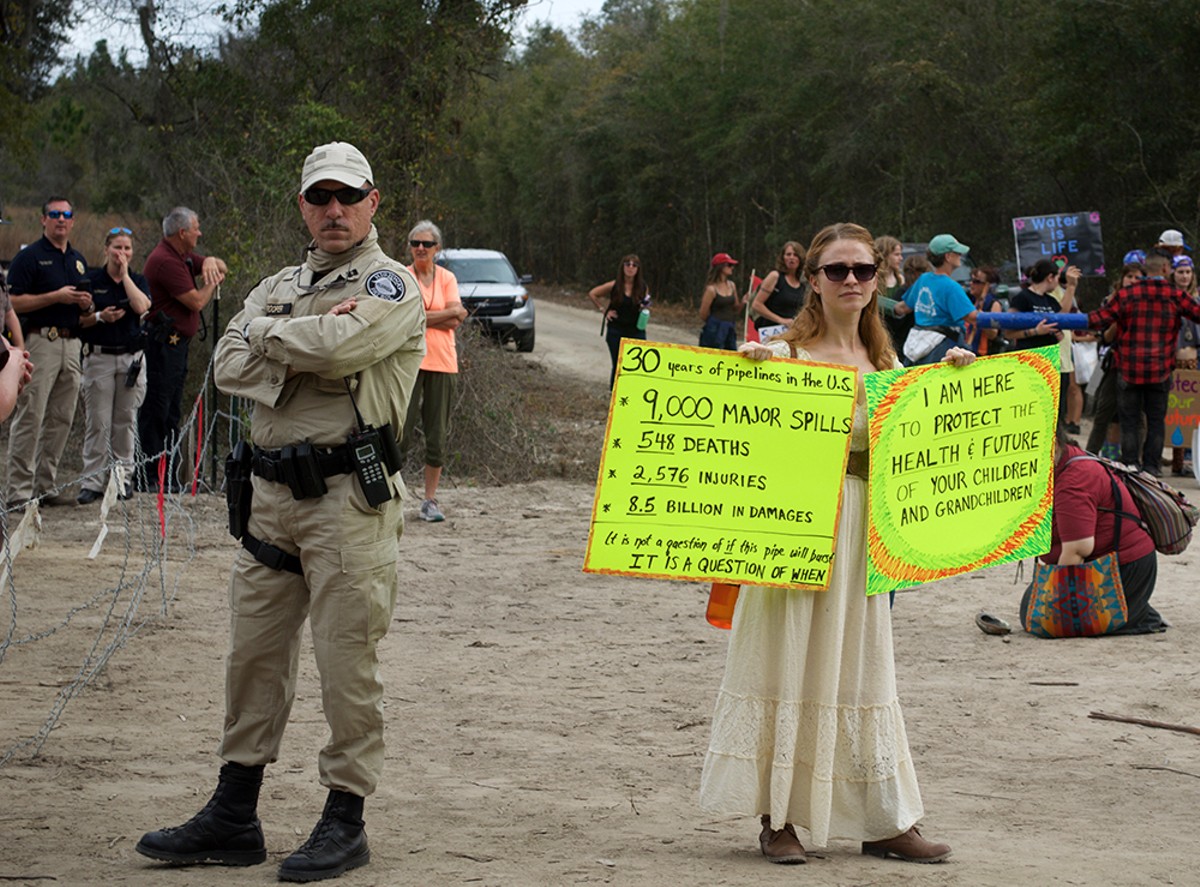"We're fighting for it now, but if we can't succeed, what's going to happen for the future, for the children?" Soulshine asks. "Atom is going to have to be the one to deal with it. There has to be a more sustainable way to live than to live off oil and gas. We have solar power, we have wind power, we have so much power and yet we give in to fear and money."
Soulshine isn't the only one worried about stopping the pipeline before its completion in June 2017. Environmentalists in Georgia and Florida say they've been fighting for years to get someone – the Federal Energy Regulatory Commission, the Army Corps of Engineers, the federal Environmental Protection Agency, state departments of environmental protection, state legislators – to halt Sabal Trail and revoke its permits. Advocates hoping the increasing demonstrations would cause an intervention were disheartened after President Donald Trump superseded the Army Corps of Engineers' December decision to halt DAPL construction and revived the Keystone XL pipeline then-President Barack Obama vetoed in 2015. But other activists say they won't stop fighting until the underground pipeline is turned on, and even then, they'll be there yelling until someone turns it off.
"Florida is late to the party," Gordon Rogers says with a dry laugh.
The Flint Riverkeeper from Georgia doesn't mean to sound disparaging – it's the tone of someone who's exhausted his options in a years-long battle to stop the Sabal Trail pipeline.
"Some people protested back then, but it's not the kind of response we're seeing now," he says. "It would have been nice to have this two years ago. I'm not criticizing people for protesting now, but what's happening is just a travesty. It's absolutely ridiculous."
Rogers says almost three years ago, a group of wealthy landowners on the northwest side of Albany, Georgia, including former Florida Gov. Bob Graham and media mogul Ted Turner, reached out to the Georgia chapter of the Sierra Club and the WWALS Watershed Coalition because they'd heard about a new pipeline from Houston-based Spectra Energy that would be cutting through easements on their properties. More people joined the coalition after they realized that one of the project's compressor stations would be constructed in a predominantly African-American neighborhood. Aside from posing no material benefit to Georgia, advocates argued Spectra has had a series of troubling incidents, including $12 million in damage from an explosion at its Texas Eastern Transmission line, though the company says on its website that its incident rate is roughly half the industry average.
After the Federal Energy Regulatory Commission granted the Sabal Trail pipeline a certificate of public convenience and necessity, Spectra Energy could use the powers of eminent domain under the federal law to buy the pieces of private property it needed.
"The FERC process is completely broken from a citizen's point of view, but quite nice from the pipeline's," Rogers says. "The lawyers basically explained they were going to lose."
In a surprising bipartisan measure, the Georgia Legislature even voted down a measure to grant easements crossings under five rivers for Sabal Trail. But Rogers says that wasn't enough to halt the project.
"I hate to tell these folks in Florida, but you can't stop it," he says. "Even if the president stepped in and did something, it would eventually be overturned by the Supreme Court unless Congress changes the law. You can't win. We're trying like hell."



















